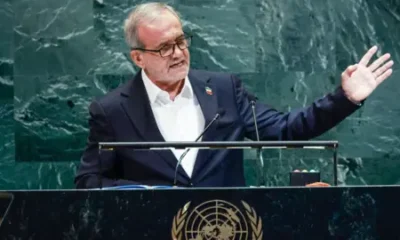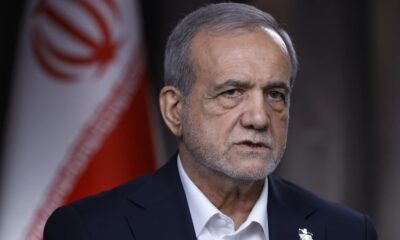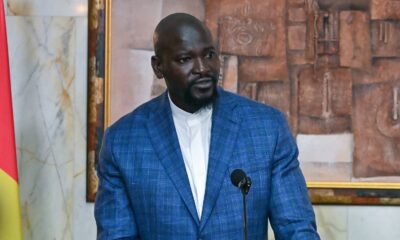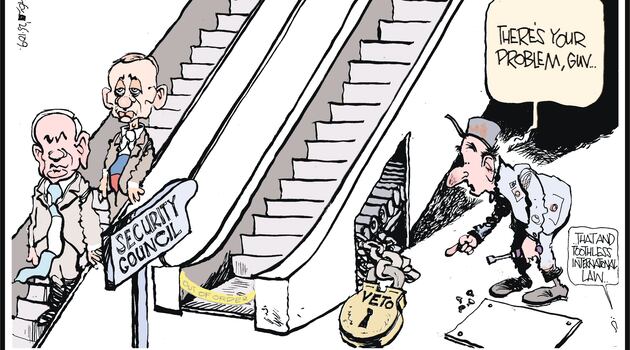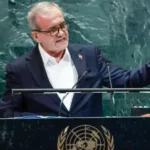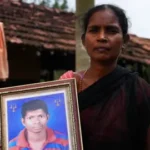Opinion
Digital ID cards: what are they and how will they help the UK deal with illegal immigration?
Read more on post.
The UK’s new digital ID card scheme, announced by Keir Starmer on September 26, has two big questions swirling around it. Is it a solution to illegal immigration? And will it give the government too much power to monitor people?
These questions are likely to dominate discussion and debate for some time. A petition has been posted and civil liberty groups and politicians are already questioning the value of the scheme. But what is the reality?
What is a digital ID card?
Similar to the NHS app and various other existing digital cards, the new scheme will create a universal form of identification stored on mobile phones. When accessing public services, the ID could be used in the same way similar schemes are used across Europe, offering the promise of a more efficient process. Estonia has famously operated a digital ID system since 2002.
One of the aspects of the new scheme that may be overlooked in the forthcoming debate is the benefits this would have in potentially reducing bureaucracy, cost, fraud and waiting times when people are trying to prove they are eligible for certain services. While there are concerns over ID cards from a civil liberties point of view, their use in improving efficiency is something to bear in mind.
Read more:
A national digital ID scheme is being proposed. An expert weighs the pros and (many more) cons
The other imperative in this scheme is monitoring who has the right to work in the UK. Anyone wanting to work or rent a home in the UK would need one, replacing the current practice of using a variety of documents such as driving licences, national insurance numbers and gas bills.
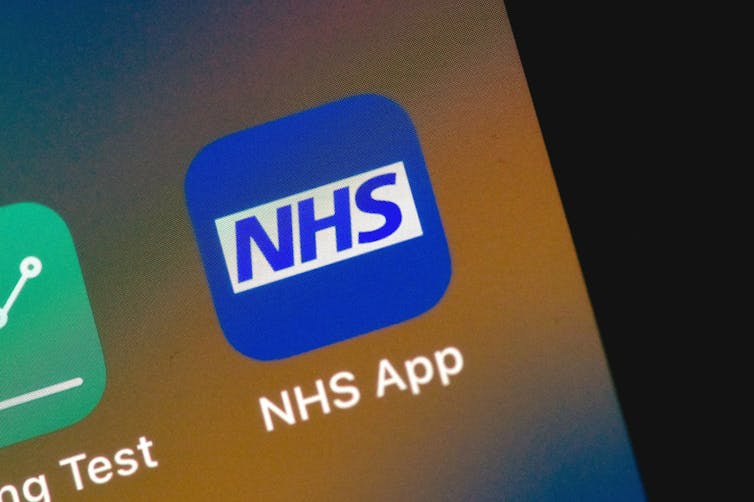
Shutterstock/frank333
There is therefore an expectation that this will affect illegal immigration by deterring people who don’t have the right to be in the UK from trying to get jobs. Employers and landlords would need to examine ID cards to confirm the identity of applicants.
Illegal immigration and the shadow economy
Combating the flow of illegal immigrants has been a consistent problem for both the current Labour government and the previous Conservative regime. The appeal of the UK is related in part to the work opportunities available to those who can make it to the country and blend in.
In principle, the current eVisas scheme and the new digital ID card would cut off access to legitimate work for those entering the country illegally – although groups such as Migrants’ Rights Network have questioned the value of the eVisas scheme for those wanting to prove their immigration status.
With the political debate focusing on trying to stop small boat crossings, this may seem like an indirect way to address a problem – but cutting off access to work could have an impact on the appeal of the UK in the first place.
Those trying to stay in the UK undetected would need to work in the shadow economy and live in accommodation that did not check ID. The shadow economy is estimated to be 10.8% of GDP in the UK. Both activities could lead to increased dependency on organised crime groups and human traffickers.
Research suggests technology has been key in reducing crime over the past 20 years. Solutions to fraud have often been focused on improving security around identification processes, such as the introduction of facial recognition technology in passports. Perhaps digital ID cards are the next hi-tech solution needed to address illegal immigration.
Stepping into the future
ID cards have been tried and proposed before with similar intentions, so this is not a radical new idea. Also, we all carry a collection of digital ID on our phones, so in many respects, people are not being asked to do something we do not already do.
Read more:
Blair’s ID cards failed in the 2000s – could Starmer’s version fare better?
What could capture the public’s attention and concern, however, is the idea that the card is mandatory and universal. If it is only used in the specified circumstances of accessing public services, seeking employment or rented accommodation, then there is no need to see the scheme as anything more than a new way to be efficient.
But will the demand to produce the card outside of these situations become a common practice in efforts to seek out illegal immigrants? What happens to those who do not have access to their digital ID card, or do not want one? Will it create a rift in society by providing more protection from illegal immigration?
These questions are certain to be raised as the government moves ahead with its plan.

Want more politics coverage from academic experts? Every week, we bring you informed analysis of developments in government and fact check the claims being made.
Sign up for our weekly politics newsletter, delivered every Friday.
Opinion
From my prison cell in Georgia, I implore Europe not to abandon us to Russia | Mzia Amaglobeli
Read more on post.
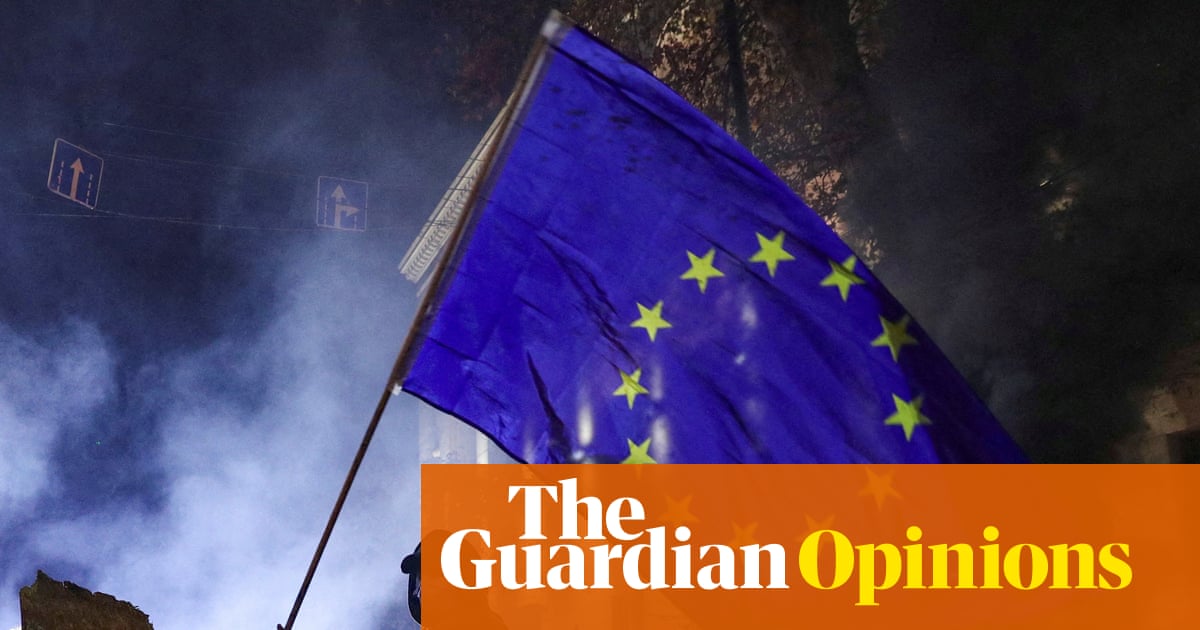
My cell is painted green, the same colour we once used in the newsroom. Two benches and a table are bolted to the floor. Nothing moves. The bed is narrow, but I haven’t fallen out yet. When I was free, but already expecting arrest, I used to joke that prison would give me the time I always lacked – finally, I could read. But here in Rustavi Women’s Colony No 5, I have almost lost my eyesight. So now I write in encroaching darkness, about the darkness that is falling across my country, Georgia.
The only window in my cell sits high up near the ceiling. On my 50th birthday, my friends and colleagues assembled on a hill opposite the prison to hold up posters and balloons. I climbed on to a chair but couldn’t quite see. I watched their greetings on the news later.
For the past eight months, this has been my life under Georgia’s repressive regime: one that seeks to silence journalists, erase dissent and break our spirit. On 12 January 2025, I was arrested on charges of “attacking a police officer” during a demonstration. I spent almost seven months in pretrial detention while the case was heard. On 6 August, the judge reclassified the charge, and I was ultimately convicted of the lesser offence of resisting an officer, receiving a two-year prison sentence. This gives me the dubious honour of being the first female journalist imprisoned in Georgia for politically motivated reasons since the country’s independence in 1991. I was offered a plea deal – an admission of guilt in exchange for a lighter sentence – but I refused. To reconcile with injustice is to be buried alive.
I had to find new ways to protest against the injustice this regime has subjected me to. I remember cutting off my braid shortly after I was imprisoned. They lent me scissors for two minutes, standing right at the door of the cell, watching how I used them. Back then, they offered me many things, but I took only 10 litres of water. I was on a hunger strike for the first 38 days. I am now writing this letter to send to the offices of Batumelebi, the outlet I co-founded, where my friends and colleagues continue the fight in my absence.
I have moments of weakness. Sometimes my eyes fill with tears. But I try not to stay in that state for long. The truth is, I have no other choice: this illegitimate government is trying to abolish journalism, the profession to which I have devoted 25 years of my life. My colleagues are in mortal danger simply for doing their job. For me to stay silent now would be to betray them, myself and about 60 other political prisoners in Georgia today. Outside these prison walls, people have taken to the streets for nine months straight. Holding EU flags aloft, they have been drenched by water cannon, suffocated by teargas and brutalised by riot police. Yet they refuse to surrender. Their determination is our hope.
We have faced stark existential choices before. In 1921, Georgia’s short-lived democratic republic was swallowed by Russia, with the help of Georgian Bolsheviks. Back then, the youth also fought valiantly in the streets, only to disappear for the next 70 years under the shadow of Soviet domination. Now history threatens to repeat itself, with Russia pulling us back into its orbit, aided by collaborators within our own government. The regime dances to the tune of the oligarch Bidzina Ivanishvili, who made his fortune in Russia and continues to advance its interests. The regime has abandoned our European path and adopted the tools of Russian rule: propaganda, repression, corruption and fear.
But Georgia is not Russia, and Georgians have consistently demonstrated resilience. Despite being invaded by Russia in 2008, and the ongoing arrests and kidnappings of our citizens in the Russian-occupied territories of South Ossetia and Abkhazia, we still choose Europe. The youth of Georgia are leading this fight against exhaustion, against despair and against the cold calculation of those who would sell our freedom.
What can be done? Support Georgia’s beleaguered civil society and our independent media. Do not punish ordinary citizens by revoking visa-free travel. Target those truly responsible: Georgian Dream party officials and their business networks. Speak out for the people in the streets, for the journalists behind bars, for a society that refuses to bend.
Offering your support to Georgia is not only an act of solidarity – it is the pragmatic choice. Another repressive regime in the neighbourhood would endanger Europe’s own security. To abandon Georgia now would be to reward Russia’s aggression.
Georgia’s national motto is “strength is in unity”. For me, being part of the EU means sharing in and contributing to that strength. We belong not in the Russian world of dictatorship and fear, but in the European family of free nations. From my cell, I can see more clearly than ever that Europe is not just about geography, it is about values: dignity, justice, equality and solidarity. And in Georgia, we are fighting for those values with everything we have – with our pens, our voices and our bodies on the streets.
after newsletter promotion
Our struggle is part of Europe’s struggle, as Ukraine’s struggle is part of Europe’s struggle. And I ask you, our European friends: do not let go of our hand. Together, we can defeat the darkness and ensure that freedom prevails. Because freedom, truly, is more valuable than life.
-
Mzia Amaghobeli is the co-founder of independent Georgian media outlets Batumelebi and Netgazeti
Opinion
The Irish Times view on the presidential election: the battlelines are drawn
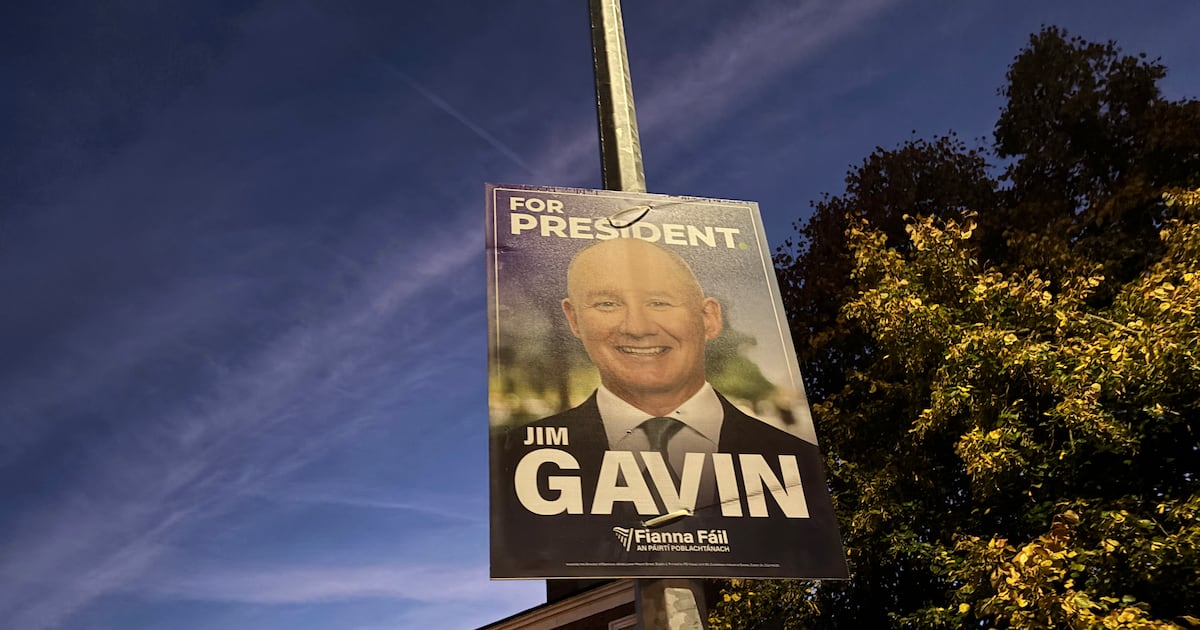
Read more on post.
And then there were three. Following an extended phoney war in the run-up to nominations closing this week, the battleines have now been drawn for the presidential election.
Four weeks from today, ballot boxes will be opened to reveal whether Catherine Connolly, Jim Gavin or Heather Humphreys will be Ireland’s 10th president.
At this point, all three will believe that victory is within their grasp. Connolly has assembled an impressively broad coalition of left-wing parties behind her and thus far has run the most modern and energetic campaign, with a string of public engagements including some high-profile podcasts. Her use of social and digital media seems well ahead of her rivals, reflecting a focus on younger voters who are more likely to be energised by her message on a range of subjects from Gaza to neutrality.
The campaigns of Humphreys and Gavin have been quieter. Humphreys has relied heavily on personality and biography. The former Fine Gael minister presents herself as a warm and familiar presence, focusing on local interactions and family history while rarely straying into policy. Gavin, making his electoral debut, is even more of an unknown quantity. Whether Micheál Martin’s decision to put forward the former Dublin football manager proves astute or naive will become clear in the coming weeks.
Both candidates appear to be keeping their powder dry. They declined to challenge Connolly’s recent controversial remarks on Hamas and German military spending. Their calculation may well make sense. In a contest almost certain to be decided by transfers, there is little to gain and much to lose by alienating voters too early. They may also believe that the election will be won or lost in the final 10 days of the campaign, when less committed voters finally begin to focus on their choice.
That strategymay be correct but carries its own hazards. Neither Gavin nor Humphreys has yet demonstrated the ability to capture the public mood with empathy and vision in the way the last three presidents did when seeking office. Mary Robinson, Mary McAleese and Michael D Higgins each offered a forward-looking, unifying message that voters could rally behind. It is not yet clear which of today’s contenders can match that feat. Already, all three have stumbled over quite basic questions on the campaign trail.
The first televised debate on Monday will be the electorate’s initial chance to judge them side by side. It will test Connolly’s positions, reveal whether Gavin can rise to the national stage and show if Humphreys can convert personal warmth into a compelling national message. For now, the race remains finely balanced, with the decisive moves still to come.
-
Politics4 days ago
European Parliament snubs Orbán with vote to shield Italian MEP from Hungarian arrest
-
Culture3 weeks ago
Life, loss, fame & family – the IFI Documentary Festival in focus
-
Culture2 months ago
Fatal, flashy and indecent – the movies of Adrian Lyne revisited
-
Environment1 week ago
Key oceans treaty crosses threshold to come into force
-
Health5 days ago
EU renews support for WHO’s Universal Health Coverage Partnership
-
Culture1 week ago
Farewell, Sundance – how Robert Redford changed cinema forever
-
Culture4 days ago
Twilight at 20: the many afterlives of Stephenie Meyer’s vampires
-
Culture4 weeks ago
What is KPop Demon Hunters, and why is everyone talking about it?




